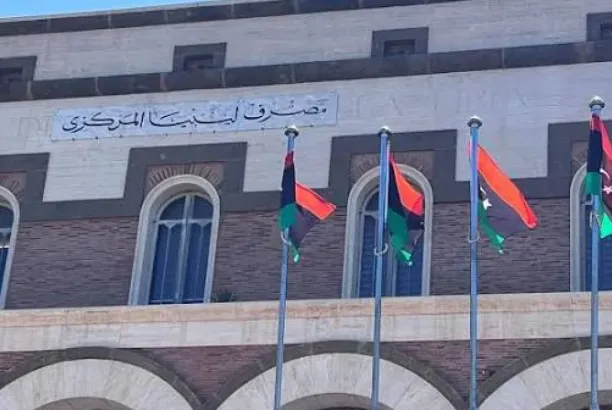
| News
Al-Hadiri Discusses the Technical and Legal Impact of Merging Libyan Oil Companies into a Single Entity
Legal expert in the oil sector, Othman Al-Hadiri, wrote: What are the technical and legal impacts of merging Libyan oil companies into a single company? How would this affect oil operations? And what is the best solution to increase production and train employees?
Some industry observers in Libya have expressed varying opinions on merging oil companies into one entity. In this specialized article, I aim to present a transparent and clear professional perspective on the technical and legal impacts of such a merger, its effect on oil operations, and the optimal solutions for boosting production and employee training.
The oil and gas industry is the backbone of Libya’s economy, representing the primary source of national income and a pillar for economic and social development. Given the multiple challenges facing the sector, the idea of merging Libyan oil companies into a unified entity emerges as a strategic option that has sparked extensive technical and legal discussions.
This merger aims to achieve operational efficiency, reduce costs, and enhance competitiveness in the global energy market. However, it has complex legal dimensions concerning asset ownership, existing contracts, company structures, in addition to technical challenges related to infrastructure integration, system standardization, and varying specialties (exploration and production, refining, petrochemicals, and human resources management).
This article examines the technical and legal impact of merging Libyan oil companies, reviews its effect on production and operational processes, evaluates potential risks and opportunities, and proposes optimal solutions to enhance efficiency, increase production capacity, and develop the skills of technical staff through effective training programs that promote a more stable and sustainable future for this vital sector.
Legal Impact of Merging Libyan Oil Companies
Merging oil companies into a single entity represents a broad legal challenge, especially in Libya’s unstable political and changing legislative environment. Each existing oil company operates under its own legal and regulatory framework, including legacy concession and partnership contracts, financial obligations, and agreements with local and international partners.
Key legal issues in the merger include restructuring existing contracts, ensuring continuity of rights and obligations without breaching the law or triggering local and international disputes, and determining the legal and administrative dependence: will the unified company be fully subordinate to the National Oil Corporation, or operate as an independent holding company?
Additionally, questions arise regarding employee rights and contracts, especially given the absence of a unified law governing mergers and acquisitions in the oil sector. The lack of a clear, modern legal framework for mergers in Libya represents one of the main obstacles to smooth and transparent implementation, compounded by recent unauthorized acquisitions of national company interests.
Technical and Operational Impact
From a technical perspective, merging oil companies poses a significant challenge requiring careful planning to unify systems and operational processes. Existing companies have varied infrastructures, monitoring and production systems, differing technologies, and varying levels of technical and managerial competencies.
A major technical challenge is integrating production operations such as drilling, refining, transportation, and distribution, particularly given differences in operating policies and technical standards between companies. Linking databases and IT systems across companies requires complex coordination, which could affect operational continuity during the merger phase.
However, if handled correctly, the merger offers opportunities to improve technical performance. Unified efforts could enhance equipment efficiency, update technologies, eliminate redundancy, and positively impact production quality and speed. Yet, without high technical competence at mid- and senior-management levels and the near absence of applied industry standards, a lack of a comprehensive technical plan could temporarily disrupt production or result in loss of specialized expertise.
Impact on Oil Operations and Production
Merging Libyan oil companies into a single entity could have a direct impact on operations and production efficiency. Positively, the merger could simplify supply chains, unify field and facility management, facilitate strategic decision-making, and enhance the sector’s capacity to increase production and respond quickly to challenges.
Reducing task and service duplication may free financial and human resources to be reinvested in production and exploration. Unified coordination could also improve major project management and ensure transparency in contracts and budgets, creating a better work and investment environment. However, current conditions suggest this capability is limited at best.
Potential risks during the merger include temporary disruption of production due to administrative or technical restructuring, conflicting responsibilities and priorities, and differences in corporate culture, which could affect performance during transitional periods. Successful integration depends largely on a phased, well-supervised plan implemented by competent technical and administrative teams with sufficient legal and institutional support.
Optimal Solutions to Boost Production and Develop Human Capital
To ensure the success of the merger and achieve its objectives, legal and regulatory measures alone are insufficient. A clear strategic vision is essential, focusing on productivity enhancement and human capital development, especially given the ongoing challenges in Libya’s oil sector due to controversial and often ineffective appointments.
First, production efficiency should be improved by transparent investment, advanced technology, equipment modernization, enhanced recovery techniques, and exploration of new reserves using AI and advanced geological data analysis. Comprehensive digital systems should track operations and reduce operational bottlenecks.
Second, effective training programs are essential, targeting all functional levels (administrative, legal, technical), particularly engineers, field supervisors, and technicians. Collaboration with local and international specialized institutes can provide professional training in safety, maintenance, and advanced operations management.
Third, fostering a culture of teamwork and innovation within the new unified entity is crucial. This includes experience-sharing, incentivizing productivity-based performance, and not allowing regional or tribal bias to dominate.
Encouraging partnerships with experienced international companies is important for technology transfer and sustainable local capacity building, while maintaining national sovereignty over decision-making and resource supervision.
Finally, political, administrative, and legal stability is essential. Without a stable economic and political environment, investment attraction and effective development planning remain challenging.
In conclusion, merging fully state-owned Libyan oil companies into a single entity is a strategic step with both great opportunities and tangible challenges. While it can enhance efficiency, unify efforts, and increase productivity, it requires careful handling of legal, technical, and organizational aspects. International experience shows that successful institutional transformation requires a clear vision, precise implementation plans, and strong political and institutional support. Attention to workforce training and technology modernization will contribute to building an oil sector capable of meeting global challenges and promoting economic development.
Ultimately, the success of this merger will not be measured solely by production output or reducing the number of companies, but by its ability to create a unified, efficient oil sector managed by trained national professionals, ensuring resource sovereignty and long-term benefit for the Libyan people.
God is the source of guidance.





